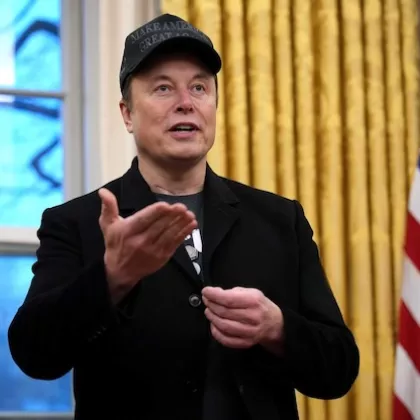Generative AI as a data analyst

Generative AI as a Data Analyst
February 15, 2024 | By Dean Sevin Yeltekin
In this Q&A, business analyst Benedikt Statt ’16S (MS) reflects on the benefits and the limitations of using generative AI in a data analytics role.
Sevin Yeltekin: What motivated you to pursue a Master’s in Marketing Analytics degree from Simon? What were some of the highlights of your experience?
Benedikt Statt: As an undergraduate student in Germany, I developed an interest in the people side of business. The desire to uncover what drives consumer behavior ultimately led me to marketing. I was working in a general marketing role at a small HR consulting firm in Mexico when I made the decision to pursue a one-year program to strengthen my skills in data analytics. At that time, I planned to continue building my career in consulting, so I got involved with Simon Vision. I remember learning early on about how to conduct and analyze surveys in market research class and then immediately putting that skill to use on a consulting project for a local company. Having the opportunity to apply theory and see very tangible results was impactful for me. I didn’t end up in consulting, but I owe my current job at Groupon to the experiences acquired through Simon Vision.
SY: Now you manage pricing and promotions for Groupon’s North American market. What does your role entail, and how do you use Generative AI in your daily work?
BS: I work with engineering, design, and optimization teams around the globe to accomplish everything from monitoring daily promotion performance and testing website features to developing strategies to target customers with personalized messaging. One of the things I appreciate most about Groupon is that it’s the kind of place where we must prove every hypothesis we come up with, even when there is a consensus. At every step of the way, we use data analytics tools to drive and defend our decisions. A gut feeling isn’t enough.
I primarily use Tableau, Google Sheets, and Sequel Data Systems in my daily work, but I do rely on generative AI to streamline things. I may use it to come up with ideas for improving Sequel queries or copy and paste an error to see where I went wrong in my analysis. By using generative AI to reduce manual work, I have more time to dig deeper into data and spot trends, which is often like finding a needle in a haystack. The drawback is that there is more thinking involved in deep analysis so I find myself more tired at the end of the day. Sometimes it's helpful to leave some more routine tasks on my plate to break up the more rigorous work.
SY: To what extent can generative AI take on the role of a data analyst?
BS: I can imagine some data engineering and maintenance roles disappearing shifting in the future, but there are limitations to what AI can accomplish. It would certainly make my life easier to feed in raw data and have generative AI tools complete all my analysis for me, but AI can't do everything I do, even if it looks like it can in a technical sense. There is a human touch that will always be missing. At Groupon, for example, someone might look at a user interface and come up with an idea to improve the customer experience. We can ask AI to implement the idea, but it takes a human to have the free thinking and creativity to come up with it in the first place. So much of what made my Simon experience meaningful was the gathering of creative minds. Intelligent people from diverse backgrounds combine their ideas to create something new. That is how you end up with places like Silicon Valley, where great ideas come from people, not robots.
SY: How should Simon integrate generative AI into the classroom experience today?
BS: Simon students graduate with a tremendous skillset, and the ability to leverage generative AI tools will be a welcome addition to the extent that they can apply them in real-world settings. When I interview a job candidate, I look for the ability to solve problems. If they use generative AI in that process, great. Those skills will certainly help push the company further. But the most important thing is that core ability to connect the dots between theory and practice. In addition to workshops and class projects, I hope that Simon can steer students toward consulting projects, competitions, and collaborations with local companies to help them connect the dots.


Sevin Yeltekin is the Dean of Simon Business School.
Follow the Dean’s Corner blog for more expert commentary on timely topics in business, economics, policy, and management education. To view other blogs in this series, visit the Dean's Corner Main Page.











